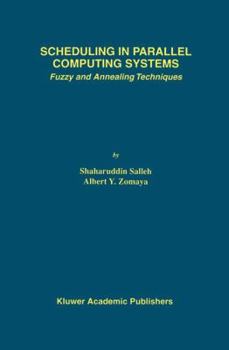Scheduling in Parallel Computing Systems: Fuzzy and Annealing Techniques
Scheduling in Parallel Computing Systems: Fuzzy and Annealing Techniques advocates the viability of using fuzzy and annealing methods in solving scheduling problems for parallel computing systems. The book proposes new techniques for both static and dynamic scheduling, using emerging paradigms that are inspired by natural phenomena such as fuzzy logic, mean-field annealing, and simulated annealing. Systems that are designed using such techniques are often referred to in the literature as 'intelligent' because of their capability to adapt to sudden changes in their environments. Moreover, most of these changes cannot be anticipated in advance or included in the original design of the system. Scheduling in Parallel Computing Systems: Fuzzy and Annealing Techniques provides results that prove such approaches can become viable alternatives to orthodox solutions to the scheduling problem, which are mostly based on heuristics. Although heuristics are robust and reliable when solving certain instances of the scheduling problem, they do not perform well when one needs to obtain solutions to general forms of the scheduling problem. On the other hand, techniques inspired by natural phenomena have been successfully applied for solving a wide range of combinatorial optimization problems (e.g. traveling salesman, graph partitioning). The success of these methods motivated their use in this book to solve scheduling problems that are known to be formidable combinatorial problems. Scheduling in Parallel Computing Systems: Fuzzy and Annealing Techniques is an excellent reference and may be used for advanced courses on the topic.
Format:Hardcover
Language:English
ISBN:0792385330
ISBN13:9780792385332
Release Date:May 1999
Publisher:Springer
Length:170 Pages
Weight:0.97 lbs.
Dimensions:0.5" x 6.1" x 9.2"
Customer Reviews
0 rating





